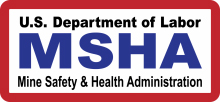MSHA document demands upheld
The United States Court of Appeals for the Seventh Circuit in Big Ridge Inc. v. Federal Mine Safety and Health Review Commission said the following in May 2012 about the Mine Safety & Health Administration (MSHA): “Congress has given … MSHA powerful tools to protect miners. Those tools include demands to inspect documents.”
MSHA regularly asks for, and is entitled to see, mine records specifically mandated by law, such as those related to mine identification, contractor identification, miner training, workplace examinations, mobile equipment defects, electrical ground checks, hazard communications, noise exposures and accident, injury and illness investigation reports.
The Big Ridge case involved an MSHA request for documents to verify operator accident and injury reports as part of an audit. The regulation contains specific authorization: “Upon request by MSHA, an operator shall allow MSHA to inspect and copy information related to an accident injury or illnesses which MSHA considers relevant and necessary to verify a report of investigation … or relevant and necessary to a determination of compliance with [accident, injury, illness and employment reporting requirements].”
Other than for accident, injury and illness report audits, MSHA regulations do not contain express authorization for MSHA to demand operators provide access to non-mandated documents. However, a general provision in the Federal Mine Safety and Health Act states this: “In addition to such records as are specifically required … every operator of a … mine shall establish and maintain such records … and provide such information as [MSHA] may reasonably require from time to time to enable him to perform his function.”
Following the Big Ridge case, this provision is being increasingly applied by MSHA and upheld on legal review.
Recent cases
 The following 2016 cases all fall into the realm of MSHA document demands:
The following 2016 cases all fall into the realm of MSHA document demands:
Warrior Coal Co. This involved a letter by an MSHA district manager stating: “MSHA is conducting a preliminary investigation into a possible willful/knowing violation. [MSHA] is requesting the names, addresses, positions, shift worked and telephone numbers of the employees.”
The Federal Mine Safety and Health Review Commission upheld MSHA’s demand saying: “Although … Big Ridge concerned MSHA’s records request [for auditing of accident, injury and illness reports] the court did not restrict its holding … It emphasized [the act] permits MSHA to make information demands for a wide range of purposes – any reasonable requirement that would help MSHA fulfill the purposes of the Mine Safety Act.”
Hopkins County Coal. This involved a safety-related discrimination complaint under the act. The commission upheld MSHA access to personnel records even though there was no identification of what protected activity was being claimed.
The commission said: “A miner’s mere belief that he or she has been discriminated against and the filing of the MSHA complaint form … are sufficient grounds to trigger an investigation.”
Again, citing Big Ridge, the commission emphasized MSHA has “broad authority” and said the act “does not restrict [MSHA’s] access to records that are specifically required to be maintained.”
BHP Copper Inc. This was a case before a commission administrative law judge. Separate from MSHA authority to demand documents during inspections and investigations, companies are subject to broad document requests anytime they enter litigation contesting MSHA enforcement.
In BHP, the company opposed a discovery request by MSHA counsel for production of company documents related to a fatal accident. The company claimed the documents were legally privileged and therefore did not have to be produced. The judge held: “While the [company’s investigation] was conducted in part for business reasons, it was also done for the purpose of obtaining legal advice. … However, it is not clear from the record that all of the documents withheld were communications by a client to counsel. … Emails that simply include an attorney as one of many recipients are not protected. … Reports, slide presentations, drawings, photographs, memoranda, fact statements and other materials summarizing the findings of the investigation must be provided.”
Notwithstanding this broad requirement, the judge allowed redaction of certain information related to communications to and from company counsel.
Statements by employees and management to counsel seeking advice or advice from the attorney, contained in the documents may be redacted. Discussions of legal strategy by counsel may also be redacted.
Michael Heenan and William Doran are with the national labor, employment and safety law firm Ogletree Deakins. michael.heenan@odnss.com; william.doran@odnss.com









